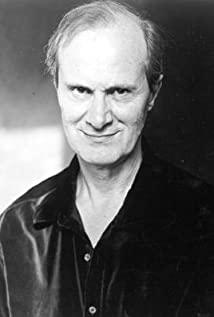Without Morris, the inner world of Professor Huo De, the hero of the movie "The Good Guy," would be much thinner.
Professor Holder teaches literature at the university, and Morris is a successful psychologist. The social status of the two may be the same, but the economic status of the latter is obviously far greater than that of the former. When Professor Huo De was frustrated because of his poor career and imperfect family life, he heard that Dr. Morris advised him to consult the psychological clinic. Professor Huo De's immediate reaction was: "I don't have the money to go to your doctor." However, economic status does not affect the friendship between the two adult men who are playing big together. From time to time, calling themselves a beer on the street and chatting with each other has become a window for them to vent their emotions.
The first beer exchange between Professor Huo De and Dr. Morris that we saw in the movie "The Good Guy" has already caught a glimpse of the different temperaments of the two men.
At that time, there was intermittent singing in the distance, which was a fragment of Mahler's vocal suite. Seeing that his friend Professor Huo De was fascinated by it, Dr. Morris mocked: "Mahler is a Jew." When the streets and alleys of the film are covered with Nazi flags, we know that the background of "The Good Man" is just cowardly. The reason why Professor Huo De dared not conceal his preference for Mahler music in the public is because the Nazis' hatred of Jews had not yet become more severe at the time, so he dared to strike back at his friends with the tip of a needle: "He (Ma Le) has reformed."
"He is still a Jew after being reformed!" Dr. Morris retorted. At that time, Morris felt that his career was going smoothly, but he was a bit mean. With the development of the plot, we know that it was the instinct of the Jewish Doctor Morris that helped him make the most sharp judgment.
So how did the plot develop so that Dr. Morris came to terms?
The frustrated Professor Huo De was frustrated because the courses he taught were not popular with students, but there was nothing he could do. With no success in his career, Professor Huo De, who returned home, had to be complacent. He allowed his wayward wife to spend time in front of the piano regardless of the soup, and his mother who was seriously ill and bedridden. As a result, he had to run to the stove and his mother Between the beds.
Professor Huo De must have not expected that just when he was so desperate, a "cloud" fell on his head.
In addition to teaching literature, Professor Huo De also likes to dance and use ink. Unfortunately, only one novel has been published after writing so many words. There is such a plot in the novel: a man and a woman in love, the woman is already dying, and she can’t see that the lover is tortured by the disease to make life worse than death, and the man helps the woman to euthanize. The plot of helping others to euthanize coincided with the Nazis' idea that they wanted to euthanize those non-quality races they identified. Therefore, they favored Professor Huo De, cleared the obstacles in his school work, and approved him to leave his wife farewell. The fact that the son and the lover are living together, he invested money to adapt Professor Huo De's novel into a movie script and soon started the filming process.
Professor Huo De, who is proud of the spring breeze, took his new girlfriend to the studio to visit the class. At the highlight moment of his life, he heard the film crew sing "The Beloved Has Blue Eyes" in Mahler's "Song of the Traveler". Replied in a low voice.
In 1884, the 24-year-old Mahler served as the royal music director in Marcel and fell in love with a soprano. Unfortunately, the relationship did not come to fruition. After falling out of love, Mahler wrote 6 poems. Not long after, Mahler composed 6 poems for himself. One of Mahler’s most important creations in his youth, the vocal suite "Song of the Traveler" came out. "The Beloved Has Blue Eyes" is the fourth song in this vocal suite, "That pair of bright blue eyes/is my lover's eyes./It is this beautiful eye that brings me/this huge world./ I have to say goodbye to this beloved place! /Blue eyes, /Why stare at me? /Now I have to face eternal sorrow." The sadness described in the poem itself is vividly on the paper, let alone Mahler It was accompanied by a sad tune. "This set of songs is a story of a tramp who was teased by fate and walked into the world of cold and warm, never-ending wandering." Mahler explained his work to his friends in this way. It can be seen that sadness is "The Beloved" There is the emotional background of "Blue Eyes". Even if he is humming with others, if the singing of others does not touch his own heartstrings, how could Professor Huo De sing uncontrollably? Under the coercion of the Nazis, Professor Huo De, who had to accept the food that came, was still sad in his heart. It's just that he can't do as his friend Dr. Morris has a clear-cut stand, but follow the trend on the road of promotion that the Nazis have created for him.
With Professor Huo De's steady progress, the upright Dr. Morris went from bad to worse. First he was disqualified from practicing as a doctor, and then the clinic was shocked into a mess. Dr. Morris, who is well versed in "reconstructed and still a Jew", had no choice but to " treat thirty-six strategies as the best strategy " after the struggle was unsuccessful. One-way ticket to Paris.
As an Aryan and “favored” by the Nazis, Professor Hodder saw that German civilians, including his mother and ex-wife, were already struggling to make a living. The word “good” in “good guys” made him just distrust the judgment of Dr. Morris. The final decision to buy a ticket for his friend was not because he believed Dr. Morris' judgment, but because of the pressure of the decisive Dr. Morris. Born to be cowardly, and even more frightened, the first time I bought a ticket because I was interrupted by an acquaintance of the Nazi Party, it was unsuccessful. Seeing that the persecution of Jews by the Nazis became more and more fierce, Professor Huo De had to believe that all his friends were telling the truth, so he overcame cowardice and timidity and successfully bought a plane ticket. The doctor was sent to a concentration camp.
Professor Huo De, who was too late to regret, tried his best to rescue his friend. He went to look for Morris on a truck full of Jews on the street. He was looking for Morris on the way to the concentration camp. He ventured into the prison. Looking for Morris's concentration camp. Morris was nowhere to be seen, and the condition of the Jews who were persecuted by the Nazis in the concentration camp was so miserable that Professor Hod, who had always believed in the Nazis, collapsed.
Hopelessly spinning around in the concentration camp, the music played by the Jews' self-organized band attracted Professor Hodder. As he listened, the third movement of Mahler's first symphony burst out.
Mahler’s "Symphony No. 1 in D Major" was composed between 1884 and 1888. It is a work of the same period as the vocal suite "Song of the Traveler". It's not difficult to understand the music material of "A Pair of Blue Eyes". However, after becoming a symphony, the same musical material has a broader meaning. In addition to the nostalgia for a love that has become a thing of the past, music fans talk about Mahler’s first symphony, especially the third movement. It is a sad funeral march.
The movie "The Good Guy", which ends in the opening phrase of the third movement of Mahler's Symphony No. 1, does not give any information on whether Professor Holder has found Dr. Morris. However, a funeral march is used to imply the fate of Dr. Morris and even Professor Horde. Does the movie "The Good Man" still need to use the pictures to continue it?
View more about Good reviews











